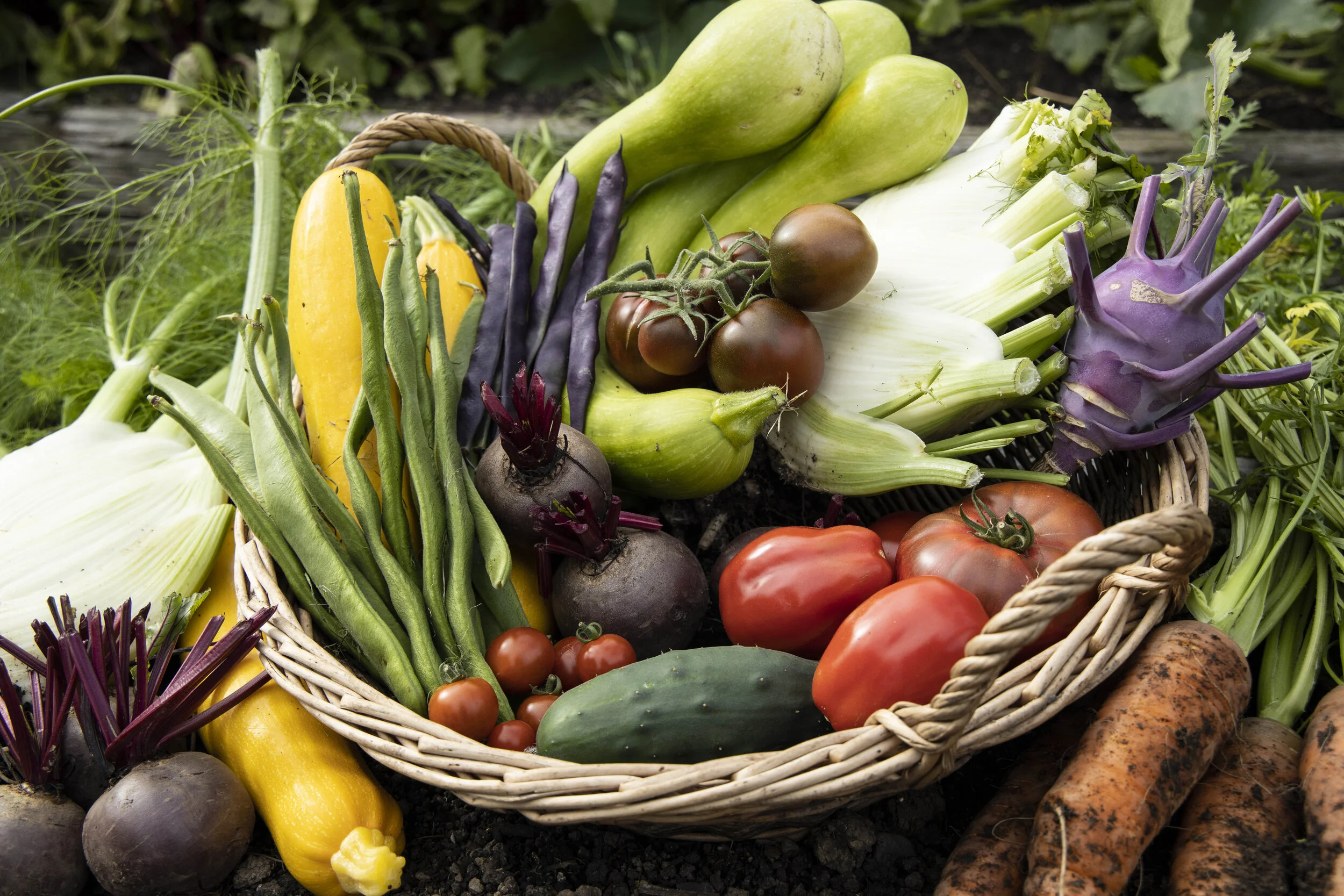The Garden
My kitchen garden is an escape from a world so noisy and complex, and I find refuge surrounding myself with plants that are grown with purpose. Little is better than gardening to the surround sound of songbirds whilst working towards a mission of growing as much delicious food as possible. The quality of the food we cook and eat is predicated by the quality of the ingredients we use. The only way to have an exceptional meal that is both flavourful and healthy is to use the highest quality produce possible, and homegrown food is often the highest quality food available.
A modern-day kitchen garden is no longer purely for food production; it is also a place for relaxation, a space for wildlife and a way of reconnecting with the outdoors. The popularity of growing food comes and goes in waves, often influenced by global or political pressures. Most recently, there has been a huge surge in people growing their own food due to the Covid-19 pandemic, fueled not only by having less to do, but also by a desire to increase resilience and self-sufficiency during unstable times. Knowing that you have X amount of food in your garden gives you a great sense of security; it’s as if a kitchen garden is your private greengrocers. The only difference is that yours is also open on a Sunday, and you’re getting the freshest produce possible.
For many gardeners, growing food is an expression of creativity and personality. Although some rules-of-thumb need to be understood, growing your own is essentially something that can be interpreted in many different ways. As time progresses, every gardener sees their own growing style evolve into what suits them best. You can apply the exact principles to cooking; you have the freedom to apply creativity and personality to whatever you make, and as time progresses, your cooking style will evolve.
Any real garden does not and should not exist only to benefit us humans, it should equally benefit the local wildlife. As a permaculturalist and a keen lover of nature, I know that in order to have a healthy and robust ecosystem (even if it is just a small garden, you need to encourage diversity in plants and nature. Diversity is one of the most effective ways of reducing pest and disease issues in the garden, and that is why I never have and never will use chemicals when it comes to food production. When you have lots of different things growing and living alongside one another, it is much harder for something problematic to come along and cause a disaster. One thing that every new gardener needs to know and apply is that diversity equals resilience and abundance.
The most critical factor when it comes to growing food is soil health. Soil is not only about the nutrients it contains but also about the biology that lives in it. The soil biology works hard to digest and make nutrients plant available, whilst plants feed these microbes with carbon in the form of sugar produced in photosynthesis. It’s an incredible mutually beneficial relationship that I’ll explore in greater detail at a later date. For now, to guarantee the best possible success from crops growing in a garden, there must be minimal disruption to the soil.
A garden is a place for us to have fun and experiment. It isn’t about what we have to do, but about what can be done. Although every garden is different, what is similar is that a garden keeps us closely connected with the changing seasons and offers us continuous sources of inspiration, enjoyment, and flavour no matter what month.



